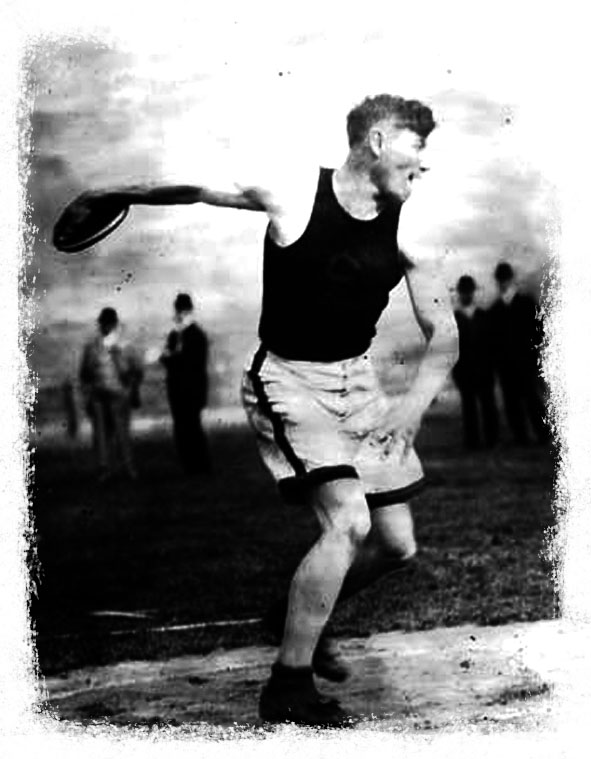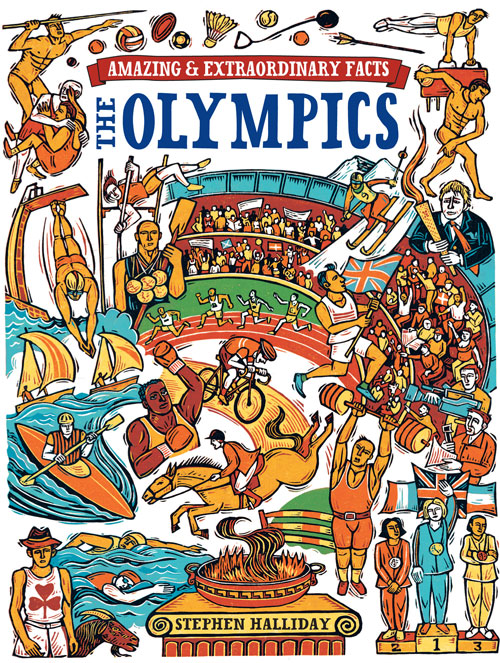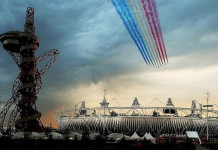Stephen Halliday- lecturer, author and general expert on all things London-related speaks to BRITAIN and describes the process of writing his recent book on the Olympics, shares the most interesting facts he’s come across and reveals his rather surprising connection with Hellman’s mayonnaise

Whether it’s Queen Victoria’s unparalleled reign of 63 years and 216 days, or the London Eye’s status as the tallest Ferris wheel in Europe, there’s something altogether irresistible about a good piece of trivia. Stephen Halliday, author of several books in the Amazing & Extraordinary Facts series, is one of the true masters of British facts and trivia, and his most recent contribution to the series is intriguing, satisfying and very relevant. Amazing & Extraordinary Facts: The Olympics charts the history of the Olympic Games, covering everything from their origins in ancient Greece to the transformations currently underway in London.
When commissioned to write the book, Halliday explains that it came as a very welcome surprise. He recounts, “I’d been thinking for some time that such a book should be written, so fortunately, when I was approached, I had already done a lot of preparation and was more or less ready to go.” Halliday continues, “The next step, which was actually the trickiest, involved sorting the information out into coherent chapters so that one thing lead logically to another and that there was some sort of shape to the book. Then I sat down and I wrote the book, which is always the bit I enjoy most.”
During his research, Halliday is constantly on the lookout for nuggets of information to pique his readers’ interest. While fact-finding for his Olympic book, Halliday came across two particularly memorable incidents.

“As the opening ceremony began for the 1948 London Games the British team, who would enter the stadium last, realised the team flag had been left in a distant car park. A young medical student who was acting as assistant to a member of the organizing committee (Harold “Chariots of Fire” Abrahams) was despatched to fetch it. Fortunately the young man could run fast. His name was Roger Bannister and within six years he would run the mile in less than four minutes.”
Unfortunately, not all of the details Halliday uncovers are positive. “I think one of the really sad stories of the Olympics was of Jim Thorpe who won two gold medals in the pentathlon and decathlon in the Stockholm Olympics in 1912. He was then disqualified in disgrace because as a student he’d played minor league baseball for a trivial sum of money. He died in 1953 and wasn’t actually forgiven until 1982 – that was a dreadful story.”
With his Olympic book already gracing the shelves of bookshops around the country, Halliday has been hard at work on his next project. From 221 Baker Street to Platform 9 ¾ at King’s Cross will explore the way London has been depicted by the likes of Charles Dickens, Sir Arthur Conan Doyle and Wilkie Collins. When asked if he could divulge any hints as to its highlights, Halliday mentions a little church in the Barbican, called St Giles’ Cripplegate, where Shakespeare worshipped, his nephew was christened and Milton was buried.

“Apart from the fact that it’s absolutely dripping with literary history, this church was partly responsible for the fact that the Royal Air Force won the Battle of Britain. In August 1940, the RAF was really up against it because its airfields were being bombed, and on the 24 August, 1940 a German pilot accidentally dropped some bombs on London which damaged this church. Churchill was angry and ordered the first bombing raid on Berlin, and Hitler was so furious that he ordered the Luftwaffe to stop attacking the RAF airfields and start attacking London instead – which was bad luck for Londoners, but very lucky for the Royal Air Force – and it turned the battle.”
When asked if he’s always wanted to be a writer, Halliday laughs and replies, “No, not really – I worked in the food industry for many years where I made my chief contribution to human welfare.”
Prodded for details, Halliday continues, “I worked for an American company called Brown and Polson where I was a marketing manager, and we discovered this product, Hellmann’s mayonnaise, which you probably know. It was very popular in America and we decided to launch it in Great Britain. I did that in 1972 and it’s now one of the biggest brands there is. I always say to people, I may be a rotten writer and a rotten lecturer, but next time you see a jar of Hellman’s mayonnaise, you’ve got me to thank.”
Genial, knowledgeable and exceptionally modest, Halliday may joke that his greatest contribution boils down to a condiment, but at BRITAIN we know better. We can assure you his books will give Hellmann’s more than a run for their money, but at the same time won’t blame you if when you next bite into a prawn mayo sandwich you find your mind wandering to some rather out-of-the-ordinary happenings.
Visit the BRITAIN shop to see all of the books in the Amazing & Extraordinary Facts series.
Catch Stephen Halliday’s 10 Olympic Facts in the latest issue of BRITAIN- out now!





 © 2024
© 2024